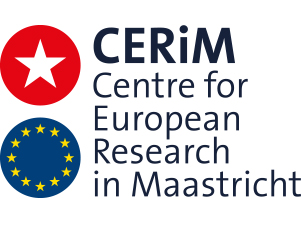Ryan Heath Lecture Summary
− 3 min readOn 10 October 2018, Ryan Heath (political editor at POLITICO Europe) gave the first Jean Monnet lecture of this academic year. Please find the summary here.
On 10 October 2018, Ryan Heath (political editor at POLITICO Europe) gave the first Jean Monnet lecture of this academic year. In his lecture titled “The first European elections?”, Ryan Heath listed three main developments that will, according to him, affect the upcoming European elections in 2019 and make them different from previous elections to the European Parliament (EP). These three developments are: the rise of Eurosceptics, theSpitzenkandidaten system and the European debates. According to Heath, the aim of the election campaign should be to ensure a greater turnout than in the prior elections in order to improve the political legitimacy of “Brussels”. However, trust is missing on the side of European citizens in current times: “we trust Uber drivers but what is lacking is trust in traditional institutions”, Heath claimed. He also pointed out that democracy is under threat in many parts of the world and that citizens are very sceptical about organisations like the European Union. The European institutions seem even more distant to the citizens than their national government. Heath therefore emphasized that media coverage, as for instance the coverage offered by Politico.eu, seeks to play an important role in bringing the European Union closer to the citizens.
Furthermore, Heath pointed out that the rise of Eurosceptics across Europe will also have a major impact on the upcoming elections and influence their outcome considerably. According to Politico, a minimum of 160 seats are going to be attributed to MEPs belonging to Eurosceptic parties, which could lead to a general fragmentation of the next European Parliament. This would be problematic, since the work of the European Parliament could become less effective, again running the risk of damaging the democratic legitimacy of the Union. The most optimistic scenario though for Eurosceptics is that they gain around 210 seats, which represents around 27% of the seats of the European Parliament; they are thus expected to remain far from gaining a majority of seats.
Secondly, Ryan Heath addressed the recent development of the Spitzenkandidatensystem first introduced in the occasion of the previous EP elections in 2014. This system encourages parties to nominate a lead candidate who would become Commission President should that party gain the highest number of seats. Heath contended that a face to a political party would encourage citizens to vote in the elections. However, he pointed out that a disadvantage of the system is that it is a “race with no rules”. The agreements for this system are very loose; therefore, it is difficult for “the average citizen” to understand it. Heath additionally named two obstacles of the system, namely that there are no clear definitions as to when someone turns into a Spitzenkandidat and that citizens cannot directly vote for theSpitzenkandidat since they vote for the members affiliated to the political party he or she
leads Citizens can therefore not find any direct connection between the Spitzenkandidat and their Member State . Heath pointed out that the Spitzenkandidaten system is a step forward in improving the political legitimacy of the EU however, it does not make it more democratic yet. Lastly, Heath suggested the establishment of a European Elections Debate Commission. This Commission would organise a certain number of debates across Europe in different locations. However, parties are partially sceptical towards political debates, since they run the risk of losing a whole campaign in one evening. This concern is particularly spread among those parties that are already likely to win the European elections. In any case, the Maastricht Debate scheduled to take place on April 29, 2019, which is going to be moderated by Ryan Heath and by UM Rector Rianne Letschert, is, in Ryan’s view, one step forward towards achieving the goal of more political debates.
After his lecture, Heath took some questions from the audience, leading to a lively discussion on concrete practicalities of European debates as well as their content and the obstacles that a moderator encounters when moderating such a debate.
